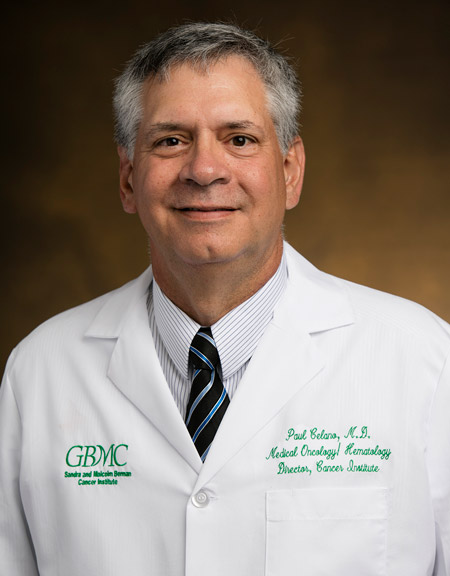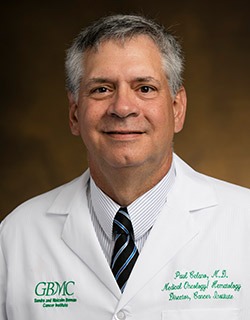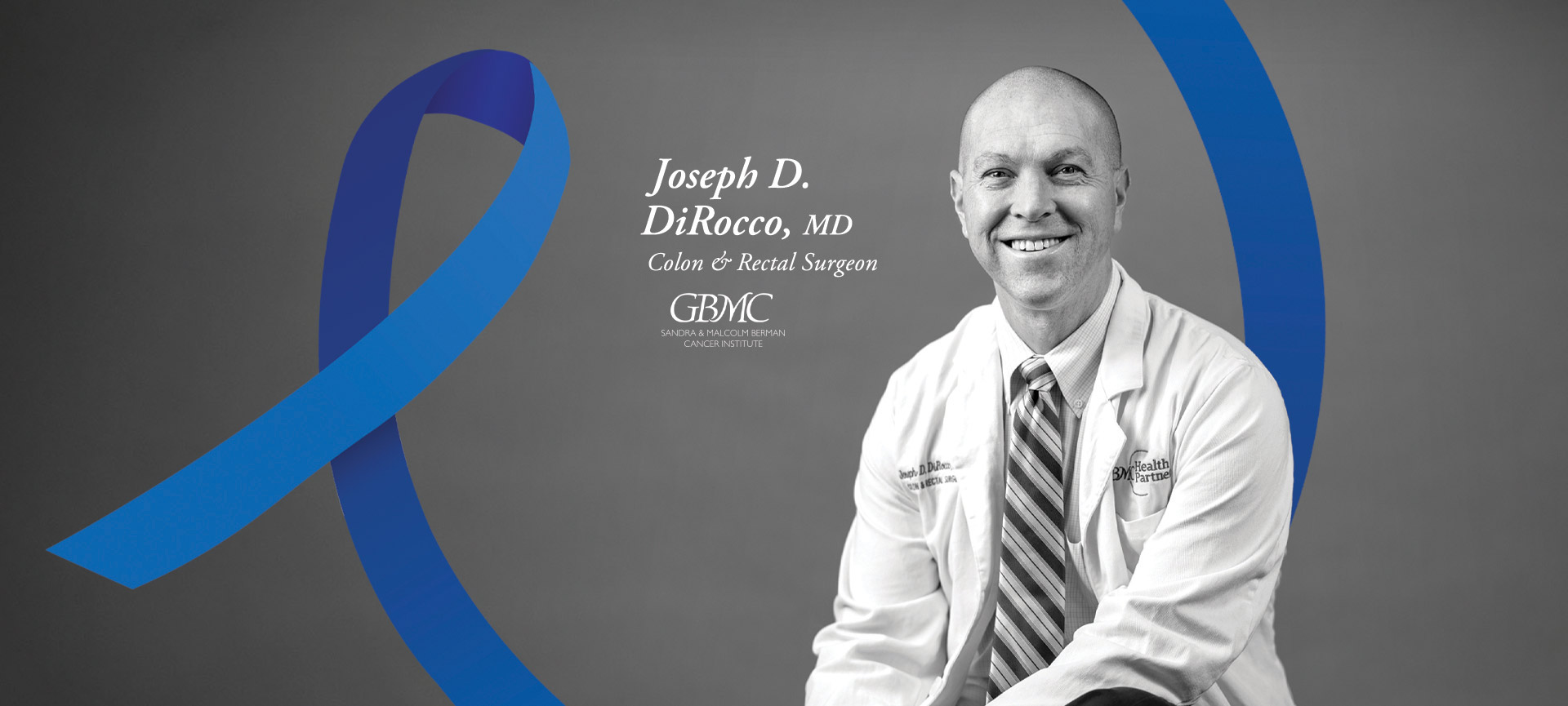GBMC’s New Gastrointestinal Oncology Program Addresses Growing Need for Multi-Specialty Care
November 15, 2017
With gastrointestinal (GI) malignancies ranking as the second most common cancer seen at GBMC (283 cases of GI cancer, with colon cancer being the most common, according to 2015 data), a new gastrointestinal oncology program was recently launched to address the multi-faceted health needs of patients with a variety of gastrointestinal cancers.

According to Paul Celano, MD, FACP, FASCO, Herman and Walter Samuelson Medical Director of the Sandra and Malcolm Berman Cancer Institute at GBMC, “Patients with gastrointestinal malignancies require many types of specialties and sub-specialties to come together to assist in their care. Recognizing this fact, we created a program focused on comprehensive, multidisciplinary care that addresses all of the complexities associated with diagnosing and treating GI cancer.”
Coordinated care and collaboration are the hallmarks of the new GI Oncology program. Dr. Celano explains that twice monthly, specialists from various departments meet to discuss new patient cases at the multidisciplinary tumor board meetings. In addition, program leaders have been working with GBMC primary care physicians on recommendations for screenings to help ensure more patients are diagnosed earlier for better outcomes.
A Multidisciplinary Focus on Gastrointestinal Malignancy
GBMC’s GI Oncology program brings together specialists from a wide variety of disciplines including:
- Primary Care
- Gastroenterology
- Colorectal surgery
- Medical oncology
- Radiation oncology
- Radiology
- Pathology
- Clinical research
- Genetics
- Oncology support services and social work
“GBMC has always had all the pieces to be a regional destination for colorectal services, and now we are bringing all of the necessary disciplines together to offer comprehensive care for GI cancer patients,” explained Joseph DiRocco, MD, colorectal surgeon and director of the GI Oncology program at GBMC.

“For GI cancer patients, there has been a historical progression toward more precise surgical technique, the addition of advanced therapies such as radiation and chemotherapy, as well as new diagnostic devices and techniques to better stage our patients upon diagnosis,” added Dr. DiRocco. “As a result, patients have more options and better outcomes. At GBMC, there is a system-wide commitment to providing high quality care from initial diagnosis and treatment to survivorship using the latest research, techniques, and technology.”
In the near future, the program will also add a nurse navigator to help patients through their care plan, answering questions, helping with appointments and scheduling of tests, and generally serving as a patient’s guide throughout the entire care process.
“The core of our hospital’s strength has always been the quality of the physicians and healthcare professionals who work at GBMC,” added Dr. DiRocco. “With such an outstanding multidisciplinary team in place, patients with any malignancy of the GI tract can be assured to receive world-class care in a warm and personal environment.”






